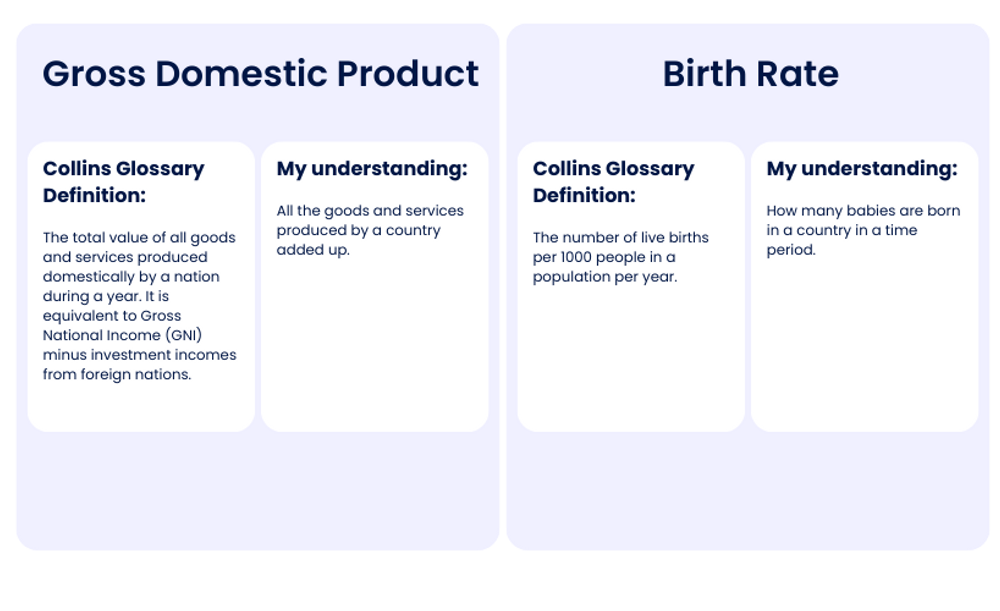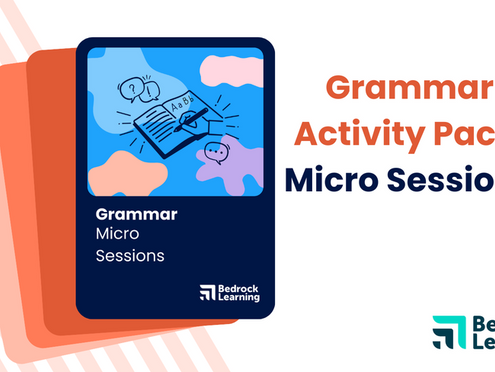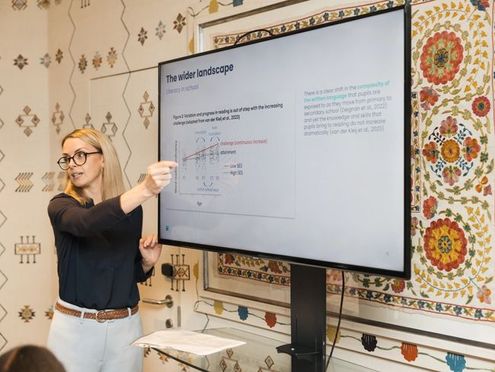The raison d’etre of subjects
We recently had the pleasure of speaking with Kate Stockings - a proudly prolific Geography blogger. By the end, I felt like I had something new to say about the monumental significance of vocabulary sequencing- and how this might mean slightly different things across different subjects.
Broadly speaking, English explores something at the heart of the human experience - at the elemental level of what we might call the soul. Geography, though, is about providing us a systematic framework to help us understand space and place in terms of cultures, political systems, economies, landscapes and environments (Royal Geographic Society). They’re built from different stuff. And the way they utilise their lexicons is entirely different.
As we have discussed in a previous article, thinking about how learners will logically encounter the key concepts in your subject is a crucial - and often neglected - part of the planning process. Words and concepts are far from silos: they operate in relation to one another. For example, if I were teaching A Christmas Carol for the first time to a class, it would be influenced by the preceding topic that I’d just covered. If we’d just covered Macbeth or An Inspector Calls, I’d almost certainly draw comparisons in terms of (in)vulnerability with the characters in those texts, using them as a springboard to promote understanding.
Two key considerations
Yes, vocabulary sequencing is important everywhere, and there’s nothing new about this. It’s also important to shift understanding away from vocabulary towards seeing words in more conceptual terms. But two things struck me:
1. The Tier 2/Tier 3 tension:
At one point, I ventured into Kate’s domain and began to reference GDP (Gross Domestic Product). After amusedly correcting me, she lovingly described it as a ‘woolly’ definition. We’ve written about Tier 2 and 3 vocabulary before here, and something that’s always troubled me is that people tend to hang on to a very fierce division between the tiers. But we often say that Tier 2 is about academic success; if something like GDP or birth rate was referred to in a subject outside of Geography, my ‘woolly’ understanding of these terms would be enough to see me through- I could be successful without an intricate understanding of these terms. But in Geography, I need a much more specific understanding of the nuances. See here:

I’d argue that in Geography, to apply and use these terms effectively we need to really understand those technicalities, whereas in other more broad conversations that may happen elsewhere (or even in more formal aspects of life), the more watered down definition is adequate. For instance, in order to understand specific case studies comparing contexts, I’d need those bits in bold! The upshot? Re-examine the vocabulary in your curricula and ask yourself: “is mine and my colleagues’ understanding of this concept robust? Might we need to clarify the nuances and iterations in our teaching sequence?” If nothing else, it’s always worth trying to tease out the distinctions between tier 2 and tier 3 language, and how this links to the delivery of your subject.
2. Interplay between concepts, topics and timelines:
I was working at a school this week and I stressed the point about subjects literally being made from different stuff, and existing for very different reasons. It made me think about the different ways that learners are expected to engage with their subjects over the course of a school day, and how we must think about the sequencing of terms within our schemes of work. Kate made two excellent points here: firstly, it’s important to think about a concept, and when a learner might have encountered it previously (tighter curricula design will mean you’ll probably be able to give more detailed responses here). What experiences or knowledge might you be able to draw on to lessen the cognitive load? How might previous experience colour this experience with the term? Secondly, the sequencing of the curriculum will inevitably colour how you’re able to teach a topic as you move through your year.
Evolution not Revolution
None of this needs to lead to a complete curriculum overhaul. At some level, it’s about creating the mental space to understand both what the concepts are that you want your learners to be exposed to, and when they will be exposed to them. Bedrock Mapper gives you a very tangible means of doing this (whilst outsourcing the work of teaching the vocabulary in the process) but even just giving some thought to the specific knowledge you want your learners to have is crucial, whilst remembering that when they encounter it will play a role in the learning process.




